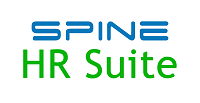Description

GCPAY

GreatSoft CRM
Comprehensive Overview: GCPAY vs GreatSoft CRM
GCPAY
a) Primary Functions and Target Markets
Primary Functions:
- GCPAY is designed specifically for the construction industry to manage payment processes.
- It facilitates the automation of subcontractor payment applications, lien waivers, and compliance document management.
- The platform streamlines the payments process through features like electronic documents, approval workflows, and integration with accounting and project management software.
Target Markets:
- The primary target market for GCPAY is the construction sector, including general contractors, subcontractors, and project managers.
- It is geared towards businesses seeking to enhance efficiency, accuracy, and compliance in their payment processes.
b) Market Share and User Base
- GCPAY enjoys a niche market share primarily because it addresses the specific needs of the construction industry.
- Its user base includes small to large construction firms, with a focus on regions where construction projects are densely populated.
- The platform might not have as extensive a user base as some broader financial software solutions due to its specialized focus.
GreatSoft CRM
a) Primary Functions and Target Markets
Primary Functions:
- GreatSoft CRM is a customer relationship management solution designed to support professional services firms.
- It offers features like client relationship tracking, marketing automation, sales pipeline management, and practice management analytics.
- The CRM integrates with existing accounting and practice management systems to provide comprehensive client relationship insights.
Target Markets:
- The target market for GreatSoft CRM includes accounting firms, legal practices, financial advisors, and other professional services providers.
- It is aimed at firms looking to consolidate client information and improve client service delivery.
b) Market Share and User Base
- GreatSoft CRM typically serves a larger number of small to medium-sized firms within the professional services industry due to its broader appeal across various sectors.
- Its market share is defined by its ability to integrate seamlessly with popular practice management software, allowing it to tap into a larger pool of users already utilizing those systems.
- The CRM market is highly competitive, and GreatSoft CRM competes with other giants providing CRM solutions, impacting its absolute market share.
Key Differentiating Factors Between GCPAY and GreatSoft CRM
-
Industry Focus:
- GCPAY is tailored specifically for the construction industry, focusing on payment applications and compliance, whereas GreatSoft CRM targets professional services firms with broader CRM functionalities.
-
Functionality:
- GCPAY specializes in automating the payment process, providing niche solutions for payment workflows, which are critical in construction but less relevant for CRM tasks.
- GreatSoft CRM provides a wide range of CRM features aimed at client management, such as relationship tracking and marketing automation, not found in GCPAY.
-
Integration:
- GCPAY integrates with construction management and accounting software, which might be limited to industry-specific systems.
- GreatSoft CRM focuses on integration with accounting and practice management systems used by professional service providers, offering more generalized integration capabilities for its target market.
-
Geographical Focus:
- GCPAY’s user base might be more geographically influenced by construction-heavy regions.
- GreatSoft CRM may have a broader geographical reach due to the professional services industry's universal demand.
Overall, while both GCPAY and GreatSoft CRM offer specialized solutions within their respective markets, they serve different industries and provide varied functionalities tailored to their customer needs.
Contact Info

Year founded :
Not Available
Not Available
Not Available
Not Available
Not Available

Year founded :
Not Available
Not Available
Not Available
Not Available
Not Available
Feature Similarity Breakdown: GCPAY, GreatSoft CRM
To compare GCPAY and GreatSoft CRM, let's break down their features, user interfaces, and unique aspects.
a) Core Features in Common
GCPAY and GreatSoft CRM both share the following core features:
-
Cloud-Based Accessibility: Both platforms are designed to be cloud-based, allowing users to access them from any location with internet connectivity.
-
Invoicing and Billing: They both offer invoicing capabilities, helping businesses manage their billing processes efficiently.
-
Reporting and Analytics: Each product provides reporting tools that help users track key metrics and generate insights into their business operations.
-
User Management: Both platforms have features for managing users, assigning roles, and controlling access to various parts of the system.
-
Integration Capabilities: They both can integrate with other software solutions, enhancing their functionality and interoperability with existing business processes.
b) User Interface Comparison
GCPAY User Interface:
- Focus: GCPAY is geared towards construction financial management, so its UI is tailored for ease of use in this context, with dashboards that highlight contract management and payment processes.
- Design: The interface is often straightforward, with a focus on functionality over aesthetics, aiming for clarity in processing complex payment structures.
GreatSoft CRM User Interface:
- Focus: As a CRM solution, its UI is designed to manage client relationships, featuring contact management, opportunity tracking, and CRM analytics.
- Design: GreatSoft CRM often emphasizes a more visually appealing UI, with customizable dashboards and user-centric design elements to facilitate sales and client management activities.
c) Unique Features
Unique Features of GCPAY:
-
Payment Management for Construction: GCPAY specializes in managing construction project payments, including applications for payment, lien waiver management, and compliance tracking.
-
Subcontractor and General Contractor Collaboration: Offers functionalities specifically for managing relationships and workflows between subcontractors and general contractors.
Unique Features of GreatSoft CRM:
-
Client Relationship Management: As a CRM, it has robust features for managing customer interactions, tracking client communications, and managing sales pipelines.
-
Accounting Practice Management: Designed with accounting practices in mind, it offers features tailored for accounting firms, including practice management and tax management tools.
Conclusion
While GCPAY and GreatSoft CRM share commonalities in their cloud-based architecture and fundamental business operation features, they cater to different industries and it reflects in their specialized functionalities. GCPAY’s focus on the construction industry sets it apart with unique features for payment management in that sector, whereas GreatSoft CRM offers comprehensive CRM and accounting practice management tools, thus catering more to customer relations and accounting practices. Their user interfaces are designed to support their specific use cases, with GCPAY focusing on practical payment management displays and GreatSoft CRM offering visually engaging client management interfaces.
Features

Not Available

Not Available
Best Fit Use Cases: GCPAY, GreatSoft CRM
GCPAY
a) For what types of businesses or projects is GCPAY the best choice?
GCPAY is specifically designed for the construction industry, making it the optimal choice for businesses or projects that require efficient payment management within this sector. It is best suited for:
- General Contractors and Subcontractors: Those needing to streamline subcontractor payment processes, manage lien waivers, compliance documents, and track payment statuses efficiently.
- Large Construction Projects: Such as commercial buildings, infrastructure projects, or any complex construction project that involves multiple subcontractors and complex billing cycles.
- Construction Firms: Companies seeking to improve cash flow management and reduce administrative overhead related to payment processing.
d) How does GCPAY cater to different industry verticals or company sizes?
GCPAY provides solutions that can scale for construction companies of different sizes, from small subcontractors to large general contractor firms. Its industry-specific features, like automated lien waiver management and compliance tracking, address key pain points across the vertical. The platform integrates seamlessly with leading construction management software solutions, allowing it to adapt to varying company sizes and operational complexities.
GreatSoft CRM
b) In what scenarios would GreatSoft CRM be the preferred option?
GreatSoft CRM is tailored for professional services firms, especially those requiring robust client relationship management features. Ideal scenarios include:
- Accounting Firms: Where managing large client databases and delivering personalized client services is critical. The CRM helps in tracking client interactions, service billing, and compliance requirements.
- Legal and Financial Services: Firms that need to monitor client communication, manage case-related information, and ensure efficient service delivery.
- Consulting Businesses: Companies looking to enhance their client engagement strategies and improve project tracking capabilities.
d) How does GreatSoft CRM cater to different industry verticals or company sizes?
GreatSoft CRM is particularly efficient for small to medium-sized professional services firms that need to maximize client relationships without losing track of essential data. Its industry-specific features, like time and billing integration, document management, and compliance tracking, make it valuable for various sectors within professional services. This scalability and versatility make it suitable for firms of varying sizes who require comprehensive CRM capabilities tailored to their industry needs.
In summary, while GCPAY is highly specialized for the construction industry with a focus on payment processing and management, GreatSoft CRM is crafted for professional services firms needing robust client relationship management capabilities. Both cater to their respective industry verticals with tools that address the unique challenges and requirements of their users.
Pricing

Pricing Not Available

Pricing Not Available
Metrics History
Metrics History
Comparing undefined across companies
Conclusion & Final Verdict: GCPAY vs GreatSoft CRM
To provide a conclusion and final verdict for GCPAY and GreatSoft CRM, it's important to weigh the pros and cons of each product, evaluate their overall value, and offer recommendations for potential users.
a) Best Overall Value
GCPAY is a specialized solution focused on payment processing within the construction industry. It streamlines subcontractor payment applications, compliance tracking, and lien waiver management. On the other hand, GreatSoft CRM is a comprehensive client relationship management tool tailored for professional services firms such as accounting and legal practices. It offers contact management, project tracking, and client communication features.
Verdict: The best overall value depends heavily on the specific needs of the user. For construction companies seeking an efficient way to manage payments and compliance, GCPAY provides significant value. For professional service firms that require a robust CRM to manage client interactions, GreatSoft CRM offers greater value.
b) Pros and Cons
GCPAY:
- Pros:
- Specialized for the construction industry.
- Simplifies complex payment and compliance processes.
- Helps improve cash flow and reduce errors in payment applications.
- Cons:
- Limited functionality beyond payment processing.
- May not be cost-effective for companies not heavily invested in construction.
GreatSoft CRM:
- Pros:
- Comprehensive CRM features for client relationship management.
- Suitable for a variety of professional services firms.
- Can enhance client communication and project management.
- Cons:
- May not offer industry-specific features outside of professional services.
- Can be complex to implement if not tailored to specific firm needs.
c) Recommendations for Users
-
Evaluate Industry-specific Needs: If your needs are niche and focused on construction payments and compliance, GCPAY is the appropriate choice. For managing diverse client interactions and project oversight in professional services, GreatSoft CRM is more suitable.
-
Consider Integration Requirements: Consider how each solution will integrate with existing systems. GCPAY may require integration with financial and project management tools, whereas GreatSoft CRM might need to sync with other CRMs or ERPs used by the firm.
-
Assess Scalability and Cost: Evaluate which product offers better scalability for your business size and growth trajectory, keeping in mind the cost considerations and possible return on investment.
-
Request Demos and Trials: To make an informed decision, engage with trial versions or demos of both products. This hands-on experience is invaluable in understanding user interface ease, customization options, and customer support responsiveness.
Final Verdict: Ultimately, the decision between GCPAY and GreatSoft CRM should be guided by industry-specific requirements, desired features, and budgetary constraints. Carefully weigh how each solution aligns with your business objectives to determine the best fit.
Add to compare
Add similar companies




